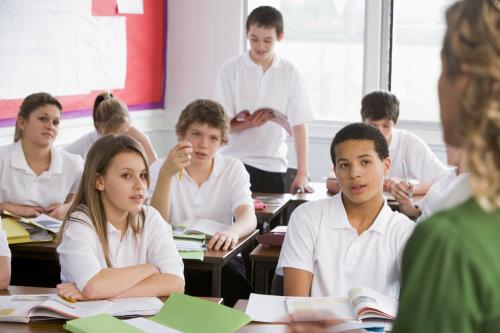25 Feb 2021

By Mark Richards,
When schools returned en masse at the start of the academic year last September, there were high hopes that things were going to return to normal. Of course, it was very much a ‘new normal’ – an alien world of social distancing and mask-wearing. Unfortunately, it became all too clear all too quickly that the ‘new normal’ wasn’t going smoothly.
The autumn term became a period of intermittent self-isolation for individual pupils, classes and sometimes even whole year groups. Bearing in mind the disruption to students’ learning earlier in the year as well, schools were right to question how fair it would be for Year 11 and Year 13 students to sit exams as normal in summer 2021.
Hindsight is a wonderful thing, of course. However, the current school closures and cancellation of exams did have an air of inevitability about it. But, once again, schools were the last to know what the government was planning.
On the face of it, there seems little for schools to be optimistic about right now. However, schools always battle through adversity and always manage to remain optimistic. This year, they need to retain this optimism more than ever – and keep a sense of balance between this and the reality of the current situation.
They also need to keep the belief that things will get better in the not-too-distant future.
Schools should look back on what has been achieved
Before they consider the way forward and the road ahead, schools would do well to reflect on what has already been achieved since the pandemic hit last March. More so than ever before, schools have coped admirably in extremely challenging circumstances to deliver the high-quality education and a first-class level of support to students.
Teachers have shown just how multi-skilled and talented they are by adapting to all the challenges that have been flung at them and by incorporating remote and online learning into their lesson delivery. Teachers have embraced technology. It may well be that in the future this hybrid model of education becomes the norm. Many students have responded enthusiastically to blended approaches to learning. For many, it has helped them to become more independent as learners.
Trial and error… but mainly success
The pandemic has forced schools into a period of trial and error. This wouldn’t normally be the way that schools would be expected to educate children. However, there really has been no alternative in the unprecedented situation that everyone has been thrust into. It hasn’t been perfect, and some schools will have made mistakes along the way – but given the circumstances this can be forgiven. It’s evident that the vast majority of parents are extremely supportive of schools and grateful to everything that has been done for their children during the pandemic period.
The way ahead, at least in the short term, could well be rocky and there are clear problems and inequalities that the pandemic has exposed, such as the digital divide across the country. However, these are deeper issues that it is up to government to address and find solutions for.
Schools need to hang on to their positivity and optimism. It will be instrumental in helping schools through the choppy waters ahead.
RELATED TOPICS
1- How is the new system of school measurement impacting on creativity?
2- Top Classroom Behaviour Management Tips for school teachers
3- What Makes a Great School Leader?
4- Top Tips For Managing Change In School
5- The Uncertain Future of Middle Schools
We encourage our readers to share their knowledge.
Do you have an idea, view, opinion or suggestion which would interest others in the education sector?
Are you a writer? Would you like to write and have your article published on The Educator?
If you are connected with the education sector or would like to express your views, opinion on something required policymakers’ attention, please feel free to send your contents to editorial@theeducator.com